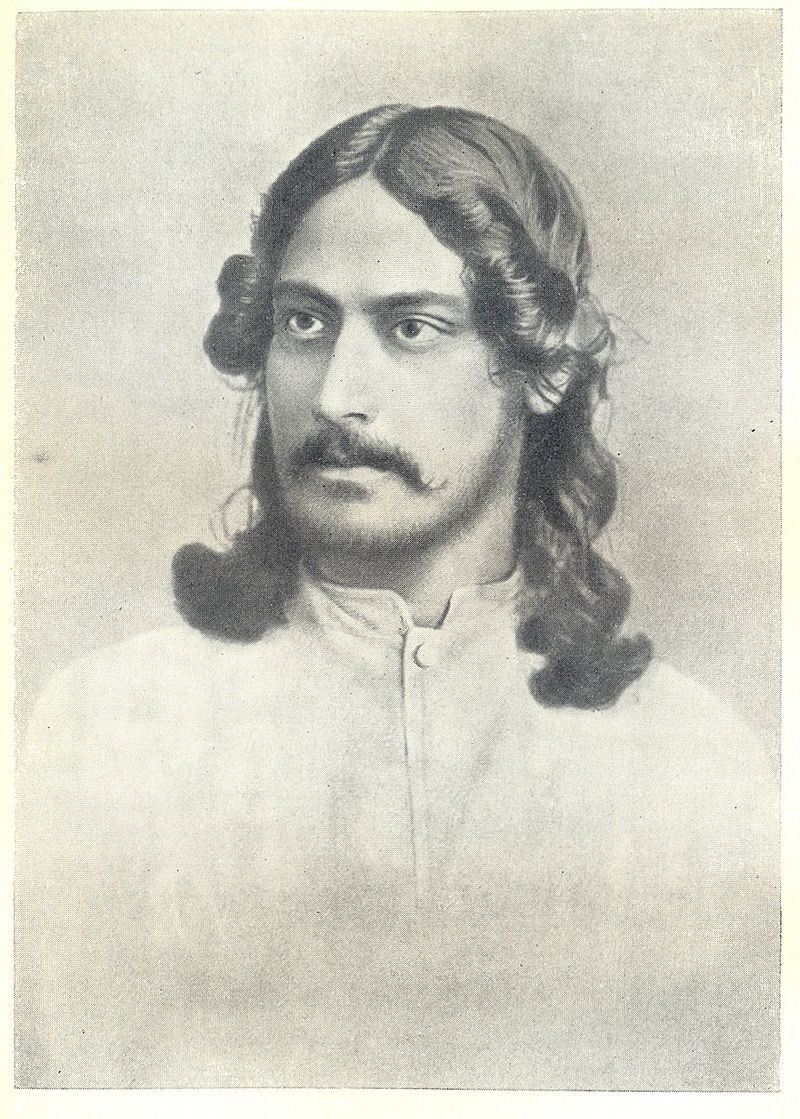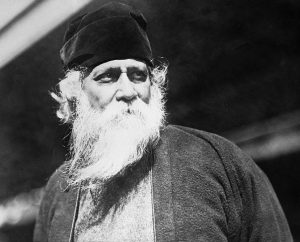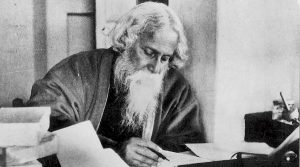
“শুন নলিনী, খোলো গো আঁখি/ ঘুম এখনো ভাঙিল নাকি!
দেখো, তোমারি দুয়ার-‘পরে/ সখী, এসেছে তোমারি রবি॥”
(“Oh! Nolini, unveil your gaze, is slumber yet to flee!
Behold, by your threshold, dear, has arrived your Rabi”)
Writes 17-year-old Rabi, with a fluttering heart, expressing his deep affection for a certain Nalini in 1878. Years later, he would become the esteemed Nobel laureate Rabindranath Tagore, and his Nalini would be known to the world as Anna Turkhad, daughter of Atmaram Pandurang Turkhad. This correspondence would mark the beginning of a brief yet remarkable journey for both individuals, painting a vivid picture of a young poet’s adoration for his muse. It would also become the foundation for a tale of unfulfilled romance, resonating throughout the illustrious life of Tagore, inviting his avid enthusiasts to delve deep into this enchanting relationship.
Dr Purnendubikash Sarkar notes, when parents decided for young Rabi to pursue law in England, they believed adapting to the new environment in foreign lands required some preparations. It was concluded that sending Rabi to Ahmedabad, where brother Satyendranath resided, would provide him with the necessary exposure to the outside world and help him become comfortable amid the unfamiliar crowd abroad.
The Turkhad family emerged as a significant figure here, as Atmaram, a close friend of Satyendranath, graciously opened his Bombay residence to host Tagore for an extended period of nearly two months. They hoped that by immersing himself in an anglicized environment, Tagore would enhance his proficiency in the English language and simultaneously absorb the nuances of English mannerisms.
Annapurna or Anna, the second daughter of the Turkhad family, personally undertook this responsibility upon returning from England. Slightly older, Anna was not only a scholar proficient in multiple languages but also a playful young woman. She would often be found by Tagore’s side, lifting his spirits during bouts of homesickness, even indulging in moments of flirtation.
Although it is unknown whether Tagore’s command of English improved or not, scholars indicate that an intimacy developed between the mentor and the student. On Annapurna’s insistence, Rabindranath bestowed upon her the moniker Nalini, meaning lotus. Many of Tagore’s early works frequently allude to a Nalini, possibly serving as veiled references to Anna. The aforementioned lines were tuned in Bhairavi Raga, to which she remarked, “Poet, I think that even if I were on my death-bed your songs would call me back to life”.
Anna once shared a cheerful anecdote, that stealing a sleeping woman’s glove granted the privilege of a kiss, before dozing off with her gloves nearby. Tagore, awkwardly naive to her affectionate gestures, eventually immortalized this memory by composing “আমি স্বপনে রয়েছি ভোর, সখী আমারে জাগায়ো না” (“I am lost in dreams, dear, please don’t wake me”). Similarly, Anna’s endeavour to engage Tagore in a tug-of-war was thwarted by his excessively shy and modest nature.
However, according to Krishna Dutta and Andrew Robinson’s The Myriad Minded Man, Atmaram had later visited Santiniketan, possibly with a marriage proposal in mind. But, perhaps for reasons like Anna being older than Rabi, and the latter being rather young at the time, it did not materialize, and the correspondence came to an end with Tagore’s departure for England.
Nonetheless, scholars argue Anna and Tagore’s connection lingered beyond their fleeting alliance as Anna continued using her moniker Nalini and named one of her nephews Rabindranath. Notably, Tagore’s 1884 prose drama Nalini left its dedication page blank, perhaps alluding to Anna.
Even at the age of 80, Tagore fondly remembered her counsel “never to wear a beard”, and lamented “Everyone knows that I have not followed that advice. But she herself did not live to see my disobedience proclaimed upon my face”. Hence, the poet acknowledged, “জীবনযাত্রার মাঝে মাঝে জগতের অচেনা মহল থেকে আসে আপন–মানুষের দূতী, হৃদয়ের দখলের সীমানা বড়ো করে দিয়ে যায়। না ডাকতেই আসে, শেষকালে একদিন ডেকে আর পাওয়া যায়না।” (“Amid the journey of life, occasionally, known messengers from the unknown arrive, expanding the boundaries of the heart. They come uninvited, till their presence cannot be found anymore on the final day.”)





